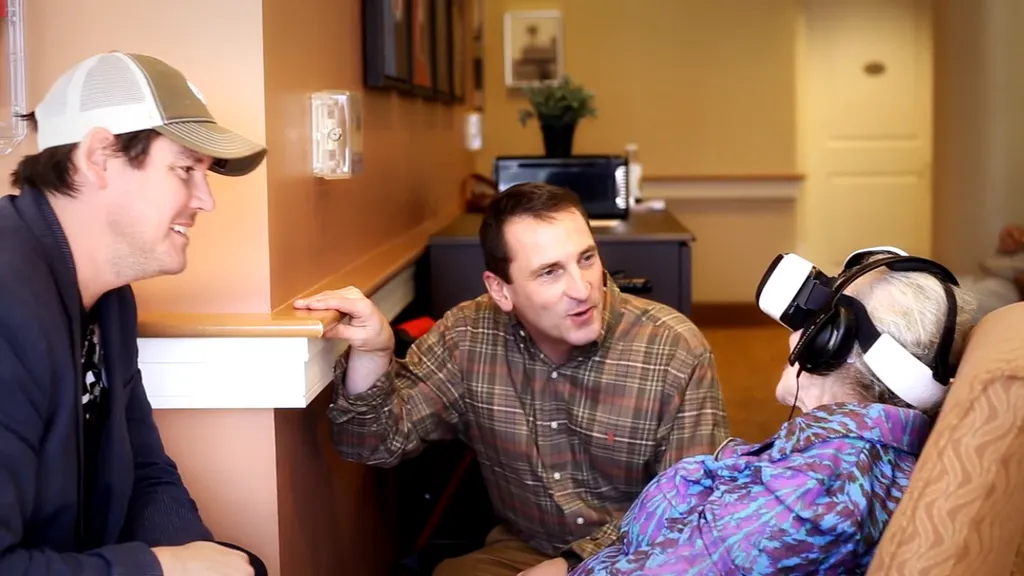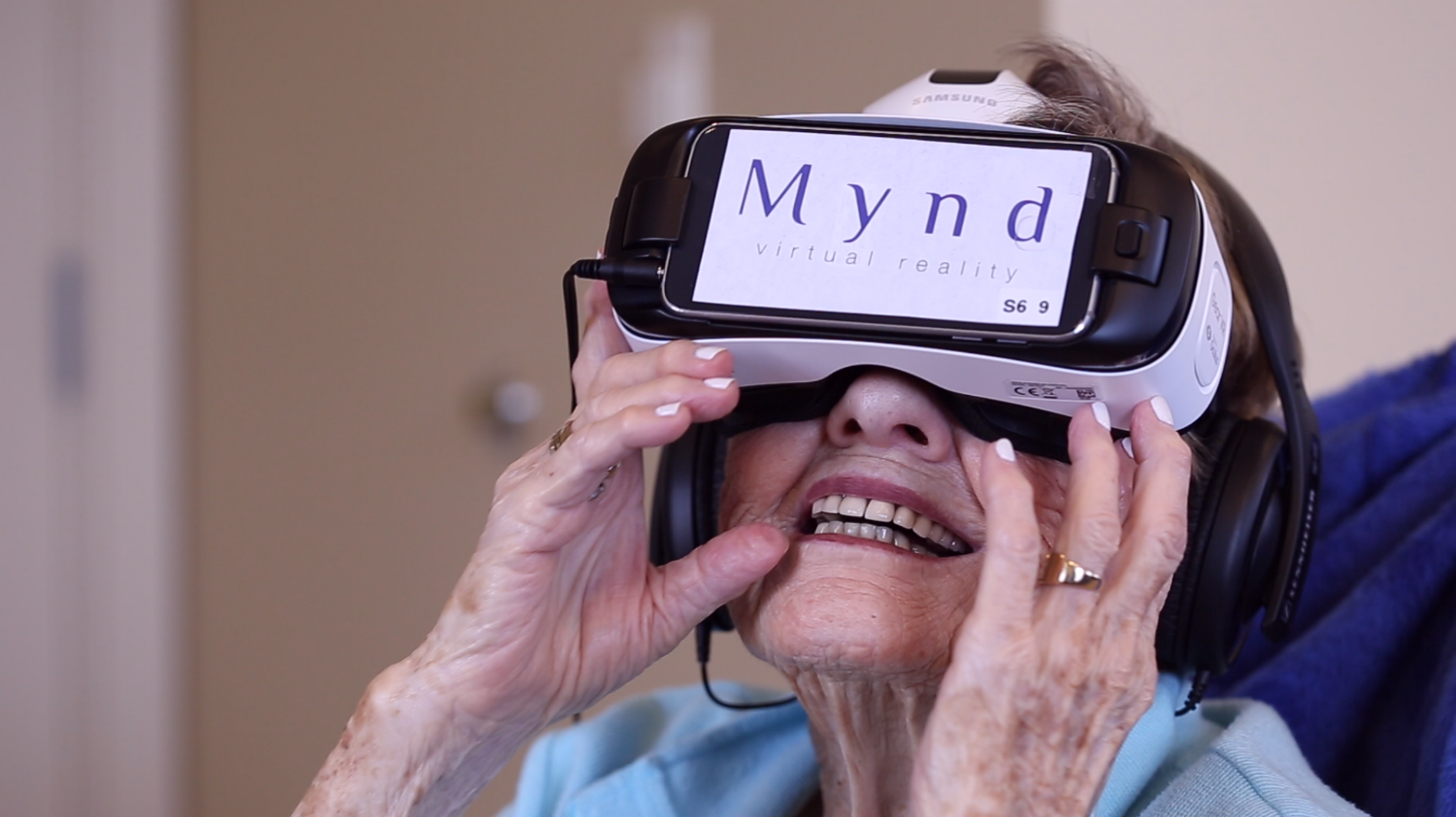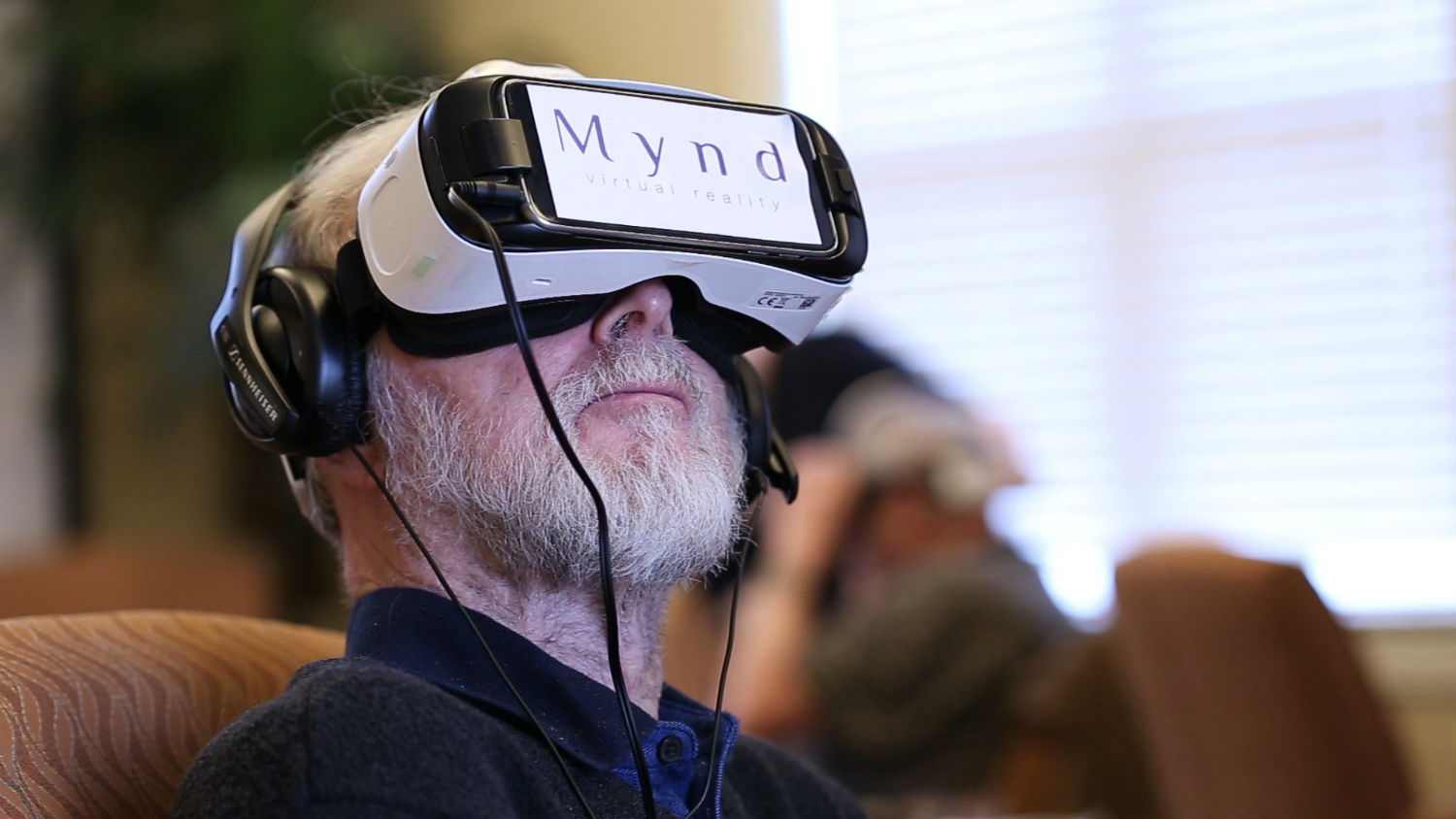A few years ago director Michael Rossato-Bennett and Music and Memory’s Dan Cohen started to explore the effects music had on people with Alzheimer’s disease. As documented in 2014’s Alive Inside, they began to see patients become more expressive and joyful through use of this long-established medium.
MyndVR co-founder Chris Brickler was particularly struck by the documentary. “I got to thinking,” he says, “Wow, virtual reality could do that at an order of magnitude.”
Brickler and co-founder Shawn Wiora are now trying to do just that.
Though still in its early stages, MyndVR has big ambitions. Brickler, who has previously worked for Verizon and British Telecomm, sees these beginnings turning into a Netflix-like service of medical grade experiences that will help elderly people with various conditions. Imagine different content that could elicit more emotions, or help calm you in times of need, or even let you see more clearly.
“I think one of the things that was interesting to me about VR was not trying to satisfy the twenty three year old gamer,” Brickler tells me over the phone. “We would actually try to create a healing health care solution with this technology that would actually serve the good of all of humankind.”
But there’s a long way to go before MyndVR gets to that stage, and Brickler is very aware of that. He’s quick to point out that the early experiments the company is undertaking are not in any way medically official, but it’s partnering with other organizations to try and get some tangible results in the near future.
“It’s very difficult to measure that,” he explains. “But we are now you know going into clinical trials that we’re going to measure but the main thing we knew was that this would bring smiles on faces as well.”
On a purely observational level, though, MyndVR seems promising. So far the company has teamed with students at the University of Texas at Dallas campus to create several kinds of experiences. One is a 360-degree video of a Frank Sinatra tribute show. “I brought in 30 actors into this thing and recreated a nighttime environment where these people really are immersed into the idea that you’re sitting on a table and someone’s performing your favorite songs,” Brickler explains.
It’s experiences like that that are pushing Brickler and Wiora to create more and more content. They want a platform where people can choose from a range of different experiences that will genuinely aid their loved ones. They also have some incredibly unique ideas for the future, like virtual home environments where picture frames might showcase past photos, and TV sets will show them videos of loved ones and past memories.
The hope is that these kinds of experiences will enable neuroplasticity. “Neuroplasticity is basically the idea of your brain regenerating past neural pathways that have been dormant and used and exercised.” Brickler explains.
MyndVR is the kind of company we want to hear a lot more from going forward. As the elderly population in the entire world continues to grow, demand for these kind of experiences could grow exponentially.
“You know it’s just a betterment of life,” Brickler says. It’s hard to argue with that.
































